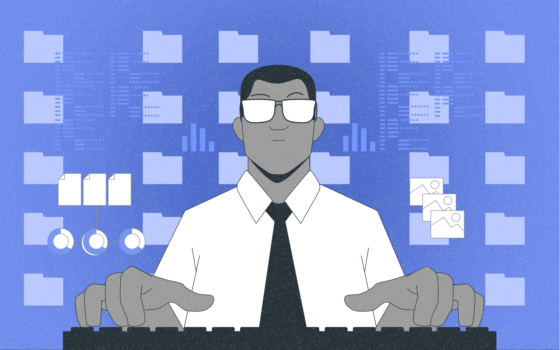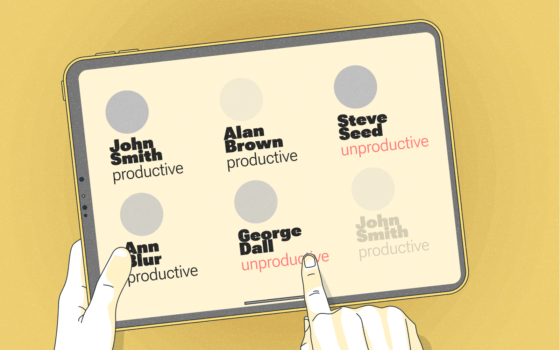What Is an Information Diet?
An information diet refers to the conscious and deliberate management of one's information consumption habits. It involves curating, limiting, and optimizing the intake of information from various sources to improve productivity, mental well-being, and decision-making capabilities. Key aspects: • Selective consumption • Quality over quantity • Balanced intake • Regular "information fasting" • Focus on relevance and actionability
In our hyper-connected world, where information flows ceaselessly from myriad sources, the concept of an "information diet" has gained significant traction. Just as we carefully consider what we eat to maintain physical health, an information diet encourages us to be mindful of the content we consume to preserve our mental and emotional well-being.
Understanding the Information Diet
An information diet is a deliberate approach to managing the volume and quality of information one consumes. It's about being selective with our attention and time, focusing on high-quality, relevant information while reducing exposure to low-value or potentially harmful content.
The term "information diet" was popularized by Clay Johnson in his 2012 book "The Information Diet: A Case for Conscious Consumption." Johnson argued that, much like food, information can be nutritious or junk, and overcomsumption can lead to negative consequences.
Key Components of an Information Diet
- Selectivity: Choosing information sources carefully, prioritizing quality and relevance.
- Moderation: Limiting the overall amount of information consumed.
- Variety: Ensuring a diverse range of perspectives and topics.
- Timeliness: Focusing on current, actionable information.
- Critical thinking: Actively engaging with and evaluating information rather than passive consumption.
The Need for an Information Diet
The digital age has brought about an unprecedented abundance of information. While this has numerous benefits, it also presents challenges:
- Information overload: The sheer volume of available information can be overwhelming and lead to decision paralysis.
- Misinformation and disinformation: The rapid spread of false or misleading information can have serious consequences.
- Attention fragmentation: Constant interruptions from notifications and updates can decrease productivity and focus.
- Filter bubbles: Algorithmic curation can limit exposure to diverse viewpoints, reinforcing existing beliefs.
- Digital addiction: Compulsive checking of news and social media can negatively impact mental health.
A study by the University of California, San Diego, estimated that the average American consumes about 34 gigabytes of information daily, equivalent to about 100,000 words. This information deluge necessitates a more mindful approach to consumption.
Benefits of an Information Diet
Implementing an information diet can yield numerous benefits:
- Improved focus and productivity: By reducing distractions and information overload, individuals can concentrate better on important tasks.
- Enhanced decision-making: Access to high-quality, relevant information facilitates better-informed choices.
- Reduced stress and anxiety: Limiting exposure to negative news and social media comparisons can improve mental well-being.
- Increased creativity: Allowing for periods of boredom and reflection can boost creative thinking.
- Better time management: Consciously allocating time for information consumption frees up time for other activities.
Implementing an Information Diet
Adopting an information diet requires conscious effort and strategy. Here are some practical steps to get started:
- Audit your current consumption: Track your information sources and time spent consuming content for a week.
- Identify high-value sources: Determine which information sources provide the most benefit and relevance to your goals.
- Set consumption limits: Establish specific times for checking news, social media, and other information sources.
- Practice digital detox: Regularly disconnect from digital devices to allow for reflection and real-world experiences.
- Curate your feeds: Unfollow or mute sources that don't add value or contribute to information overload.
- Diversify your sources: Seek out perspectives that challenge your views to avoid echo chambers.
- Implement "slow media" practices: Choose in-depth, long-form content over rapid-fire updates when appropriate.
Tools for Managing Your Information Diet
Various tools can assist in implementing an information diet:
| Tool Type | Examples | Purpose |
| News aggregators | Feedly, Flipboard | Curate and organize news sources |
| Screen time trackers | RescueTime, Freedom | Monitor and limit device usage |
| Ad blockers | uBlock Origin, AdGuard | Reduce online distractions |
| Read-it-later apps | Pocket, Instapaper | Save articles for focused reading sessions |
| Digital wellness apps | Forest, Offtime | Encourage mindful technology use |
The Information Diet in the Workplace
Organizations are increasingly recognizing the importance of managing information flow to improve employee productivity and well-being. Some companies have implemented policies to support healthier information consumption habits:
- Email-free days or hours to encourage focused work
- Limitations on meeting durations and frequencies
- Promotion of asynchronous communication tools
- Training programs on digital wellness and information management
A 2024 survey by Deloitte found that 68% of companies now include some form of information management training in their employee wellness programs, up from 42% in 2021.
Challenges and Criticisms
While the concept of an information diet has gained popularity, it's not without its challenges and critics:
- Difficulty in implementation: Breaking ingrained habits of constant connectivity can be challenging.
- Fear of missing out (FOMO): Concerns about missing important information or social connections can hinder adoption.
- Professional requirements: Some jobs necessitate constant information monitoring, making a strict diet impractical.
- Potential for echo chambers: Overzealous curation might lead to limited exposure to diverse viewpoints.
- Digital divide concerns: Critics argue that the ability to manage one's information diet is a privilege not available to all.
Addressing these challenges requires a nuanced approach that balances the benefits of an information diet with practical realities and individual needs.
The Future of Information Diets
As our digital landscape continues to evolve, so too will our approaches to managing information consumption. Several trends are likely to shape the future of information diets:
- AI-powered curation: Advanced algorithms may help filter and personalize information more effectively, reducing cognitive load.
- Augmented reality (AR) interfaces: AR could change how we interact with information, potentially making consumption more intuitive and less disruptive.
- Digital wellness regulations: Governments and organizations may implement policies to protect individuals from information overload and digital addiction.
- Education initiatives: Information literacy and digital wellness may become core components of educational curricula.
- Neurotechnology: Advancements in brain-computer interfaces could revolutionize how we process and filter information.
Economic Impact of Information Diets
The adoption of information diets can have significant economic implications:
- Productivity gains: A study by the McKinsey Global Institute estimated that the average knowledge worker spends 28% of their workweek managing email. Implementing an information diet could potentially reclaim a significant portion of this time.
- Healthcare costs: The American Psychological Association reports that chronic stress, partly attributed to information overload, costs the U.S. economy up to $300 billion annually in absenteeism, turnover, diminished productivity, and medical, legal, and insurance costs.
- Innovation potential: By freeing up mental bandwidth, information diets could foster more creative thinking and innovation in various sectors.
A 2024 report by the World Economic Forum suggested that widespread adoption of healthy information consumption habits could boost global GDP by up to 0.5% (approximately $435 billion USD) through improved productivity and reduced healthcare costs.
Conclusion
As we navigate the complexities of the digital age, the concept of an information diet emerges as a crucial tool for maintaining mental clarity, productivity, and well-being. By consciously curating our information intake, we can harness the benefits of the information age while mitigating its potential drawbacks.
Implementing an effective information diet is not about complete disconnection or ignoring the world around us. Rather, it's about fostering a more intentional and balanced relationship with information. As with any diet, the key lies in moderation, quality, and mindfulness.
As we look to the future, the ability to manage our information consumption effectively may well become one of the most valuable skills in both personal and professional spheres. By embracing the principles of an information diet, we can navigate the digital landscape with greater purpose, clarity, and control.
The journey towards a healthier information diet is ongoing and personal. It requires regular reflection, adjustment, and a willingness to challenge our habits. But the potential rewards—improved focus, reduced stress, enhanced creativity, and more meaningful engagement with the world around us—make it a worthwhile endeavor for individuals and organizations alike.
In the words of author and digital minimalist Cal Newport, "The key to thriving in our high-tech world is to spend much less time using technology." An information diet provides a structured approach to achieving this balance, enabling us to leverage the power of information without being overwhelmed by it.


